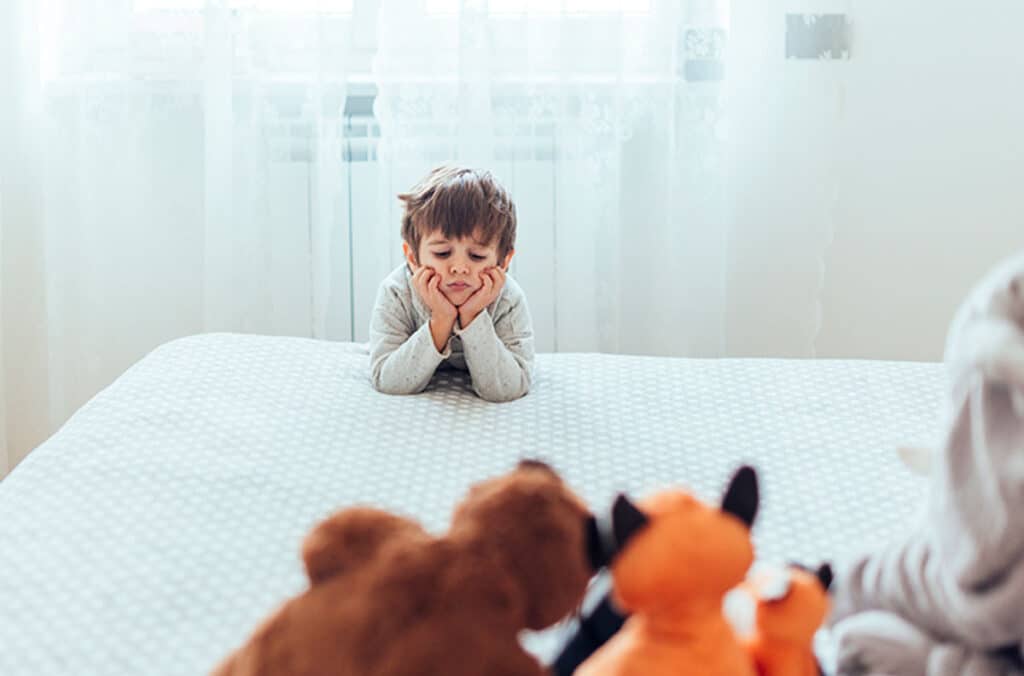Childhood depression is a serious mental health condition that impacts individuals across all age groups, including children. It manifests as persistent sadness, a sense of hopelessness, and a diminished interest in daily activities. The effects of childhood depression can significantly influence a child’s development, academic performance, and social interactions.
This article aims to enlighten parents, caregivers, and professionals on understanding childhood depression, identifying warning signs, and supporting affected children.
Expert Children’s Depression Therapy – Start Healing Today!

How to help kids with depression?
We can support a child with depression from several approaches, among which we have:
Effective Communication
Discussing feelings with children can be challenging, but it’s important to foster a supportive and trusting environment. Tips for effective communication include choosing a calm setting, being open about feelings, listening without judgment, and validating their experiences.
Support Strategies at Home
In addition to professional treatment, parents and caregivers can support children by maintaining routines, encouraging engaging activities, involving them in physical exercise, spending quality time together, and offering support and encouragement.
Professional Treatment and Therapies
Childhood depression requires serious treatment, which might include psychotherapy, medication, or a combination of both. Cognitive-Behavioral Therapy (CBT) is highly effective, focusing on understanding and coping with negative thoughts and behaviors. Other helpful therapies include family therapy, interpersonal therapy, and group therapy.
Interventions in School and Community
Schools and communities also play a crucial role in supporting children with depression. Collaboration with teachers and school counselors, support programs, and community resources are essential.
Identifying Warning Signs
Parents, caregivers, and educators can play a crucial role in spotting childhood depression warning signs. These include changes in appetite or sleep, energy levels, concentration difficulties, social withdrawal, academic performance shifts, behavioral issues, and self-destructive thoughts or behaviors.
Understanding Childhood Depression
Childhood depression’s symptoms can be different from those in adults, often expressed through behavioral, mood, and academic performance changes.
Common symptoms include:
- Persistent sadness, hopelessness, or apathy
- Altered appetite or sleep patterns
- Changes in energy levels or activity
- Difficulty concentrating
- Social withdrawal or isolation
- Self-destructive thoughts or behaviors
It’s crucial to recognize that experiencing some of these symptoms doesn’t automatically indicate depression. However, if a child shows multiple symptoms persistently for over two weeks, professional help should be sought.
Relevant Statistics and Facts on Childhood Depression
The American Psychiatric Association notes that depression is the most common mental disorder among children and adolescents, affecting about 20% at some point in their lives.
Children at higher risk for developing depression typically:
- Have a family history of depression
- Have experienced significant trauma or loss
- Suffer from physical health issues
- Are exposed to stress or abuse
Causes and Common Risk Factors
The exact causes of childhood depression are not fully understood but are believed to be a mix of biological, psychological, and environmental factors.
Biological factors:
- Genetic predispositions
- Neurotransmitter level changes, like serotonin and dopamine
Psychological factors:
- Negative coping mechanisms
- Low self-esteem
- Relationship challenges
Environmental factors:
- Stressful life events
- Abuse or neglect
- Traumatic experiences
Conclusion
Childhood depression is a serious condition that significantly impacts children’s lives. With proper treatment, children with depression can recover and lead healthy, fulfilling lives.